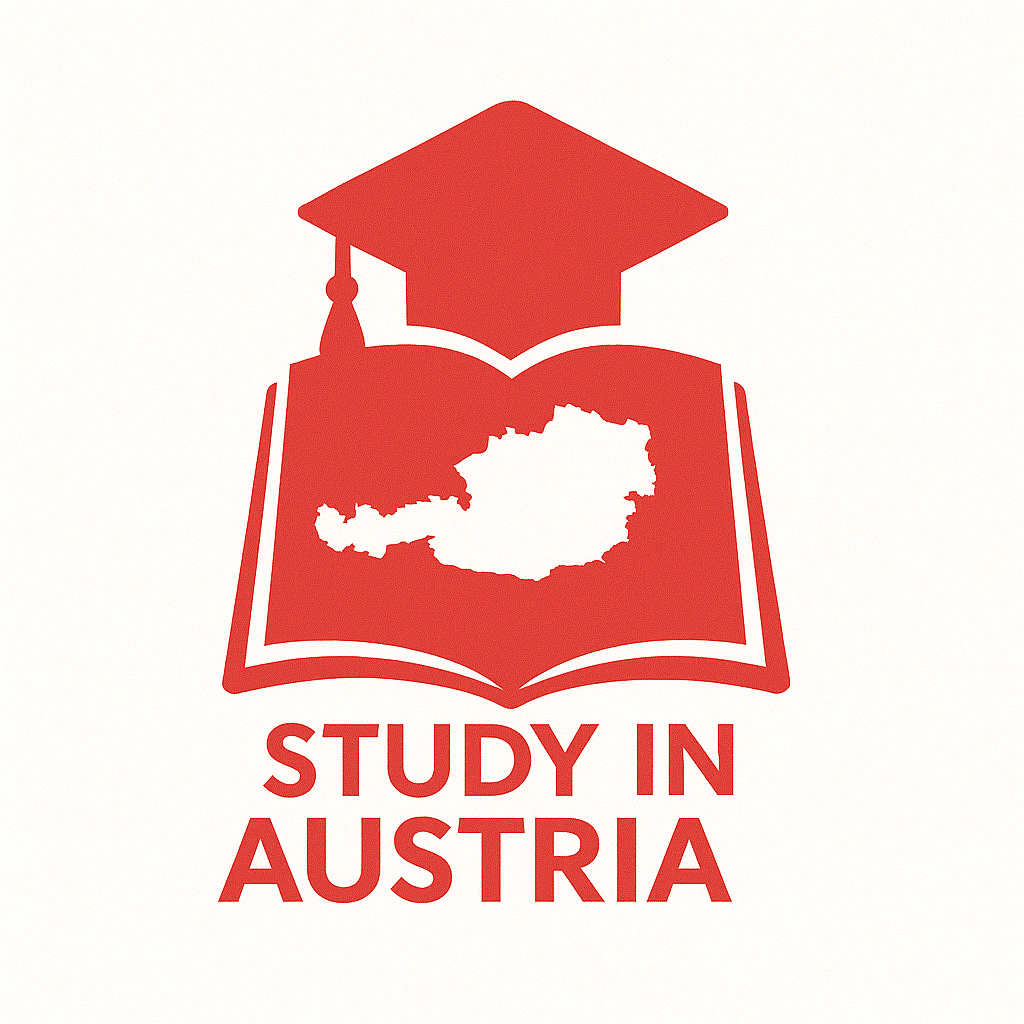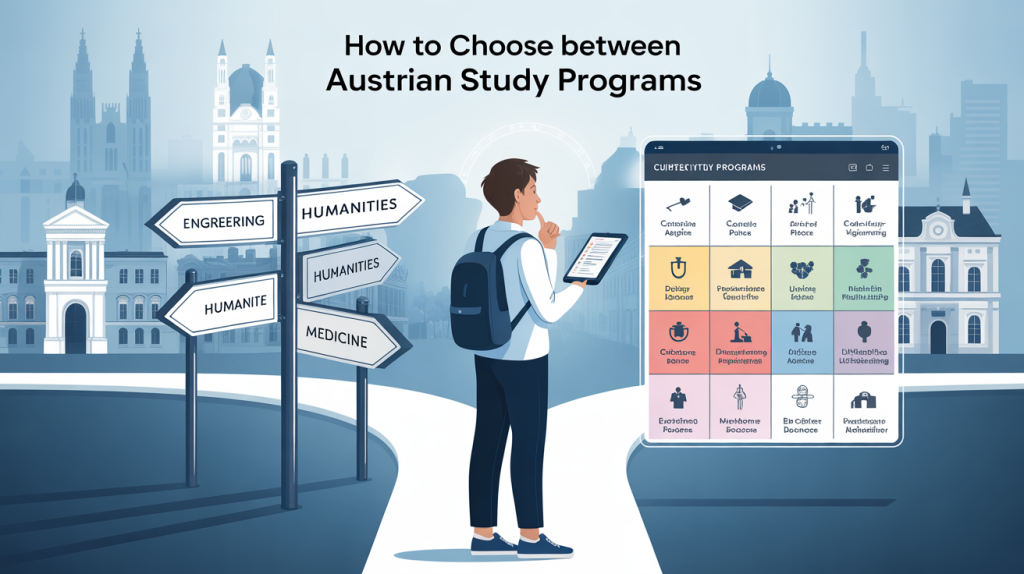How to Choose Between Different Austrian Study Programs for Your Future
Quick Navigation
- 1. Identify Your Academic and Career Goals
- 2. Explore Program Options and Institutions
- 3. Assess Language Requirements
- 4. Compare Entry Requirements
- 5. Evaluate Location and Campus Life
- 6. Review Tuition Fees and Financial Aid Options
- 7. Consider Career Prospects and Internships
- 8. Seek Advice and Further Guidance
- Summary Table
- Take the Next Step
1. Identify Your Academic and Career Goals
Before diving into program specifics, it is essential to define your interests, strengths, and long-term career aspirations. Consider the following:
- Interests & Strengths: Reflect on the subjects that excite you and areas where you excel.
- Career Aspirations: Determine if you envision a career in academic research, practical application, or a combination.
Austrian universities and universities of applied sciences are known for their diverse approaches to education, offering a range of curricula designed to meet various academic goals.
2. Explore Program Options and Institutions
Austria’s higher education landscape is rich with opportunities, featuring:
- Traditional Universities: Focused on academic research and theory.
- Universities of Applied Sciences (*Fachhochschulen*): Emphasize practical skills and industry connections.
- Universities of the Arts: Concentrate on creative disciplines.
- Private Universities: Often offer specialized programs.
When evaluating potential programs, utilize the Study in Austria platform to explore:
- The variety of programs available in fields such as natural sciences, engineering, social sciences, arts, business, and health sciences.
- Specific specializations within these fields that align with current global trends and local industry needs.
3. Assess Language Requirements
Language proficiency can be a significant factor in your decision:
- Many undergraduate programs are taught in German, necessitating proficiency at the B2 level or higher.
- An increasing number of master’s and doctoral programs are offered in English, which may be more suitable for international students.
Review the language of instruction for each program and determine your proficiency level in the required languages.
4. Compare Entry Requirements
Each program has specific entry prerequisites:
- Academic records and transcripts from previous studies.
- Entrance exams or preparation courses, particularly for competitive fields.
- Portfolio requirements for programs in the arts or creative industries.
Additionally, some programs may require supplementary documents, such as motivation letters or personal interviews. Ensure you fully understand these requirements to prepare accordingly.
5. Evaluate Location and Campus Life
The location of your chosen institution greatly impacts your overall experience:
- Do you prefer the vibrancy of a city like Vienna or Graz, or the tranquility of a smaller town?
- Investigate campus facilities, available student services, and housing options.
- Explore extracurricular activities that are available to support your personal development and integration into the community.
A strong campus life contributes significantly to your academic and personal growth during your studies in Austria.
6. Review Tuition Fees and Financial Aid Options
Tuition fees in Austria are generally more affordable compared to other European countries, but they can vary based on your citizenship and the type of institution. Consider:
- Tuition Fees: Check individual institution fees for local and international students.
- Scholarship Opportunities: Many institutions offer scholarships or financial aid; review these options thoroughly.
- Part-time Work Possibilities: International students are often allowed to work part-time while studying, providing financial support.
Utilize the Study in Austria platform to find information on these potential financial aids.
7. Consider Career Prospects and Internships
Career readiness is a vital aspect of your educational journey:
- Determine whether your chosen program includes internships or work placements.
- Explore whether the institution has partnerships with industries that could facilitate job placements post-graduation.
Some universities provide career services and have extensive alumni networks to support your transition into the workforce, which can greatly improve your employability in Austria and beyond.
8. Seek Advice and Further Guidance
Do not hesitate to utilize the resources available through the Study in Austria platform:
- Participate in information sessions, webinars, and counseling to ask specific questions.
- Gather insights from current students or alumni to understand their experiences and perspectives.
Personalized support can clarify uncertainties and enhance your decision-making process.
Summary Table: Key Factors for Choosing an Austrian Study Program
| Factor | What to Consider |
|---|---|
| Academic & Career Goals | Subject interests, long-term plans |
| Program & Institution Type | Traditional vs. applied sciences, private |
| Language of Instruction | German or English requirements |
| Admission Criteria | Academic records, language tests, interviews |
| Location & Lifestyle | City size, campus environment, housing |
| Tuition & Funding | Fees by citizenship, scholarships, job options |
| Career Support | Internships, career services, alumni networks |
| Student Support | Orientation, counseling, extracurriculars |
Take the Next Step with Study in Austria
We encourage you to explore further and take the next steps in your educational journey. For detailed program listings, admission advice, and further resources, always consult the official Study in Austria platform, your trusted guide for a successful academic future in Austria.

